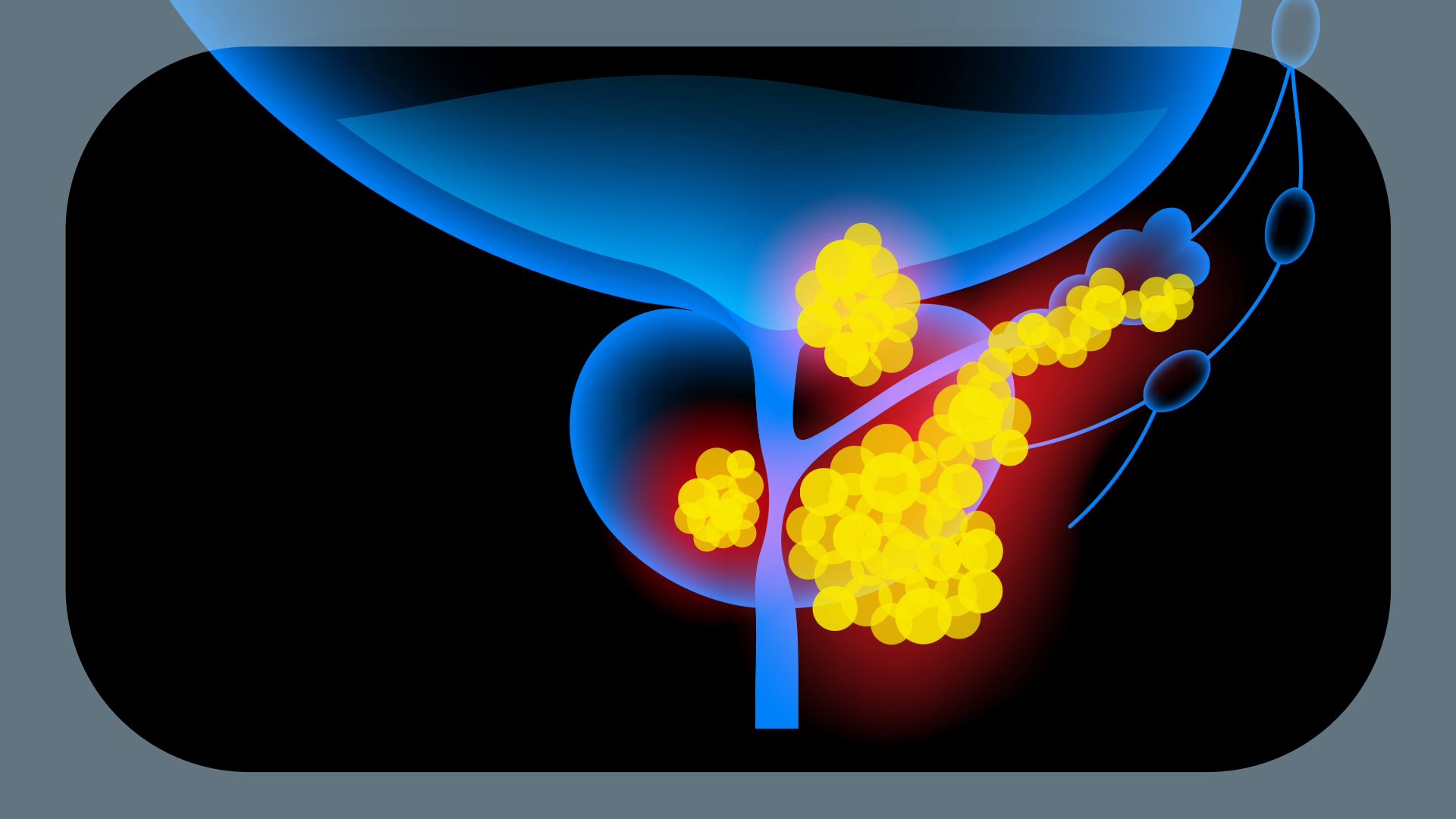nmHSPC | Image credit:
© pikovit – stock.adobe.com
Enzalutamide (Xtandi) combined with leuprolide generated a statistically significant and clinically meaningful improvement in overall survival (OS) vs placebo plus leuprolide in patients with nonmetastatic hormone-sensitive prostate cancer (nmHSPC; also known as nonmetastatic castration-sensitive prostate cancer [nmCSPC]) with high-risk biochemical recurrence at high risk for metastasis, meeting the key secondary end point of the phase 3 EMBARK trial (NCT02319837).1
Top-line results from the OS analysis of EMBARK also showed a favorable trend toward improved OS for patients who received enzalutamide monotherapy vs placebo plus leuprolide, although this difference was not statistically significant. Detailed OS results from the EMBARK trial are planned to be presented at an upcoming medical conference.
“These data demonstrate that treatment with [enzalutamide] can extend life for men with nmHSPC and high-risk biochemical recurrence who have relapsed after initial curative-intent therapy with prostatectomy, radiation therapy or both, further validating EMBARK’s metastasis-free survival [MFS] data,” Neal Shore, MD, FACS, of START Carolinas/Carolina Urologic Research Center in Myrtle Beach, South Carolina, stated in a news release. “While men with nmHSPC with high-risk biochemical recurrence now have expanded treatment choices, these results demonstrate a clear clinical benefit, including both MFS and OS, supporting the clinical practice of initiating [enzalutamide] for these patients.”
The EMBARK investigators reported no new safety signals, and the safety findings were deemed consistent with the previously demonstrated safety profile of enzalutamide. Safety data from the initial analysis showed that the most common adverse effects (AEs) in the enzalutamide/leuprolide and placebo/leuprolide arms included fatigue and hot flashes. The most common AEs in the monotherapy arm were hot flashes, gynecomastia, and fatigue.
“[Enzalutamide] is the only androgen receptor inhibitor–based regimen to demonstrate a survival benefit in metastatic HSPC and nmHSPC with high-risk biochemical recurrence, as well as castration-resistant prostate cancer, highlighting its significant patient impact in advanced prostate cancer,” Johanna Bendell, MD, oncology chief development officer of Pfizer, added in the news release. “These positive results add to the robust clinical support for the use of [enzalutamide] and broaden clinical confidence, offering men with high-risk biochemical recurrence evidence that they might live longer when they start [enzalutamide] early.”
In the double-blind, multi-national EMBARK trial, 1068 patients with nmHSPC with high-risk biochemical recurrence were randomly assigned to receive enzalutamide at 160 mg daily plus leuprolide (n = 355), placebo plus leuprolide (n = 358), or enzalutamide monotherapy at 160 mg (n = 355).2 Data from the initial analysis, which were published in The New England Journal of Medicine in October 2023, showed that the study met its primary end point of a statistically significant and clinically meaningful improvement in MFS for patients who received enzalutamide plus leuprolide vs placebo plus leuprolide. The median follow-up of 60.7 months. The 5-year MFS rate was 87.3% (95% CI, 83.0%-90.6%) in the enzalutamide/leuprolide arm, 71.4% (95% CI, 65.7%-76.3%) in the leuprolide/placebo arm, and 80.0% (95% CI, 75.0%-84.1%) in the enzalutamide monotherapy arm. MFS outcomes with enzalutamide plus leuprolide were superior to those with leuprolide plus placebo (HR, 0.42; 95% CI, 0.30-0.61; P < .001). MFS outcomes with enzalutamide monotherapy were also superior to those with leuprolide plus placebo (HR, 0.63; 95% CI, 0.46-0.87; P = .005).
Notably, in November 2023, the FDA approved enzalutamide for the treatment of patients with nmCSPC with biochemical recurrence at high risk for metastasis based on data from EMBARK.3
“Over 1.5 million men with advanced prostate cancer around the world have benefited from treatment with [enzalutamide] since its initial approval in 2012,” Shontelle Dodson, executive vice president and head of Medical Affairs at Astellas, added in the news release.1 “The scope and rigor of the EMBARK trial exemplify Astellas’ and Pfizer’s longstanding commitment to the prostate cancer community, and we look forward to sharing detailed findings in a future scientific forum.”
References
- Xtandi plus leuprolide significantly improves survival outcomes in men with non-metastatic hormone-sensitive prostate cancer with high-risk biochemical recurrence. News release. Pfizer Inc. July 10, 2025. Accessed July 10, 2025. https://investors.pfizer.com/Investors/News/news-details/2025/XTANDI-Plus-Leuprolide-Significantly-Improves-Survival-Outcomes-in-Men-with-Non-Metastatic-Hormone-Sensitive-Prostate-Cancer-with-High-Risk-Biochemical-Recurrence/default.aspx
- Freedland SJ, de Almeida Luz M, De Giorgi U, et al. Improved outcomes with enzalutamide in biochemically recurrent prostate cancer. N Engl J Med. 2023;389(16):1453-1465. doi:10.1056/NEJMoa2303974
- Pfizer and Astellas’ Xtandi approved by U.S. FDA in earlier prostate cancer treatment setting. News release. Astellas. Updated November 17, 2023. Accessed July 10, 2025. https://www.astellas.com/en/news/28626
